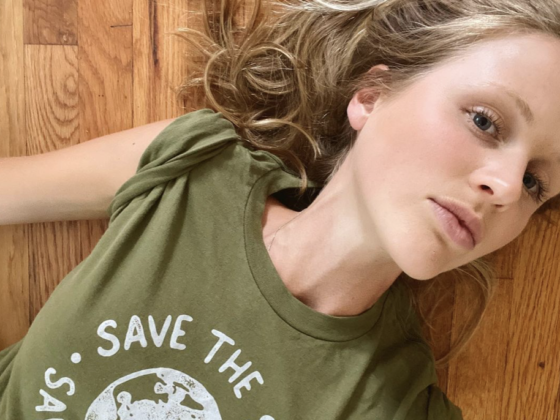
By Racheal Bola-Keji
Inclusivity is an important part of every individual’s life. It’s that desire to be seen, understood and accommodated for. But inclusion isn’t always available for all. Sometimes representation isn’t equal and universal – a realisation that occurred to me recently in my pursuit to live sustainably.
Don’t get me wrong, sustainable brands are doing a great job of advocating for ethical change. But there is still a blind spot in portrayal. In the words of Celeste Scott:
“there is still a hierarchy of who gets to be at the forefront of representation.”
My quest for eco friendly hair products:
I have always been eager to find eco friendly wash day products that work for my afro hair type. But my sheer laziness to search, has made me hold it off for a while now. After reading a recent article about DIY Hair Care Treatments.
I was motivated to start my pursuit towards eco friendly hair products. But what I thought was going to be an easy and fun adventure turned out to be harder than I thought. I’ve been left with the question of : why is it harder to find a selection of ethical products for women with afro and coily hair textures?
What is the big issue brands need to change?
I don’t think the big issue is a lack of variety because there are lots of ethical beauty brands that sell shampoo’s and conditioners. But compared to straight hair types, us afro haired females are very limited in choice.
Still, the many ‘do it yourself’ suggestions I came across made me realise that there aren’t as much beauty brands giving a helping hand to women with afro and coily hair types. And this is unfortunate, because it makes our shift to conscious buying 10 times harder than those who are catered for.
“Brands will not successfully shift consumers shopping habits towards more conscious brands if they refuse to represent the diverse array of consumers that exist.”
Without discrediting the immense growth of diversity in the sustainable industry, I kind of agree with Celeste Scott. I think Celeste Scott explains the issue of representation perfectly. One size, one race, one hair texture, one social class doesn’t fit all! And it can be hard to trust the diversity of a brand when you struggle to see your community within the products.
But on the bright, there are eco friendly brands representing the minority, it is just a matter of researching and finding them. Eventually, I was able to find ethical beauty brands that were suitable for my Afro hair texture which was great.
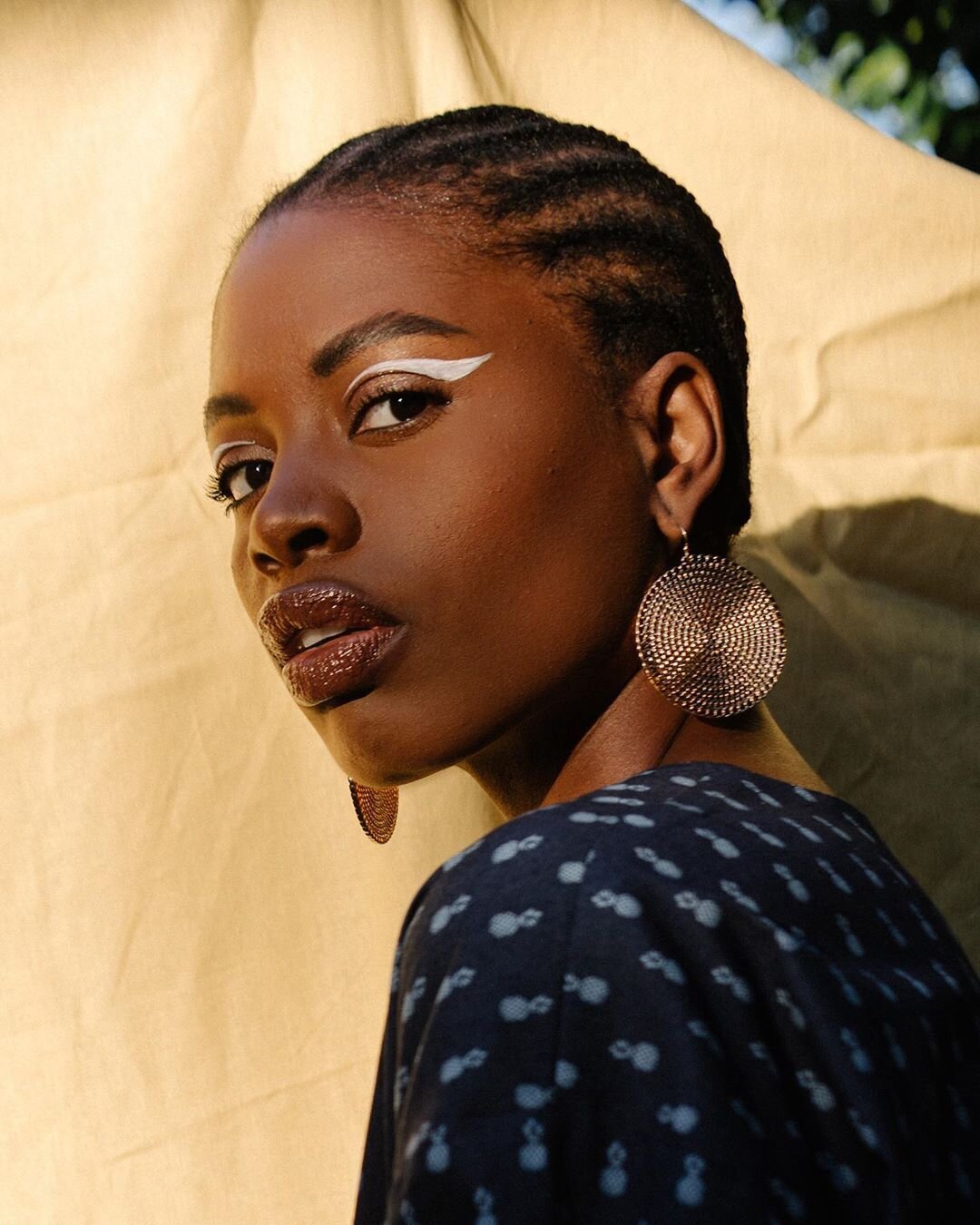
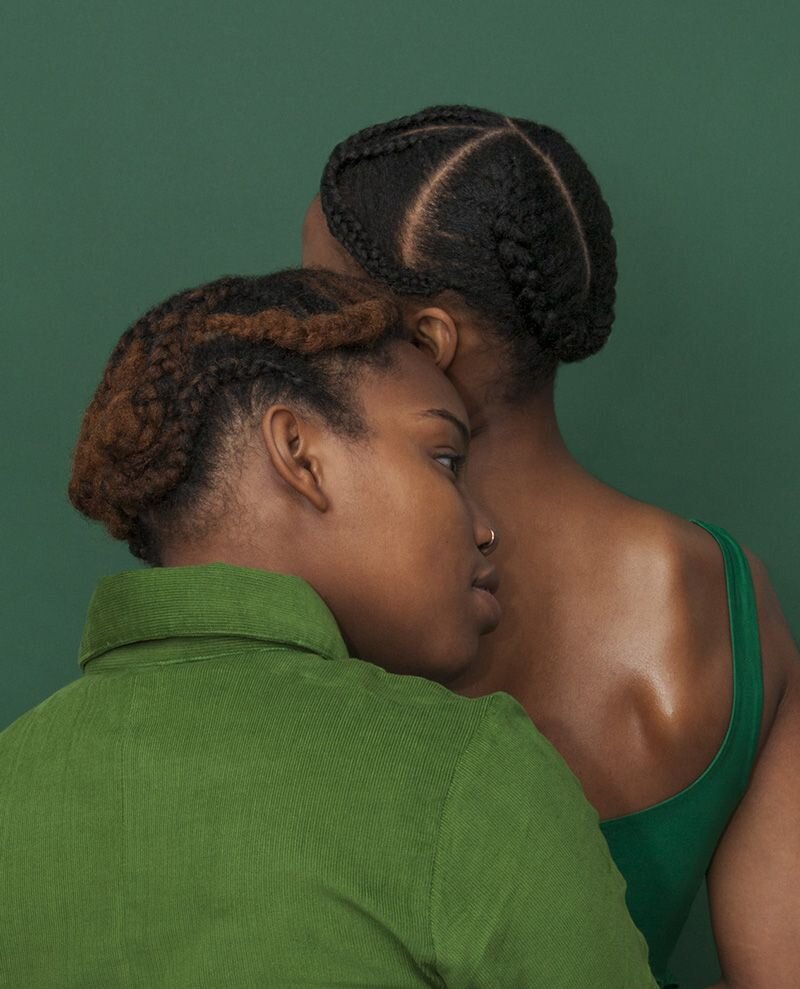
The mix up: diversity vs inclusivity
Diversity and inclusivity are two words commonly used in conversations regarding progress in the beauty industry. But they can often be confused and mixed up. It’s like ‘there’ and ‘their’- we know what the words mean individually but can often group them as one. And there can be a lot of ‘there’ and ‘their’ play when it comes to representation within eco friendly beauty brands.
So what is the difference between diversity and inclusivity?
Diversity is ‘the mix’ of something; it is the difference within a group of people. But unlike diversity, inclusion accommodates the differences within a group of people. Let me break this down some more… Andres Tapia once said
“Diversity is the mix but inclusion is making the mix work”.
It’s kind of like a pack of Haribo’s, everyone has a favourite flavour because there is a variety to choose from. But imagine going into a pack of Haribo’s and realising that no flavour accommodates your tastes?
That’s what my initial shopping experience felt like. It felt like there was nothing for me. I saw people like myself on campaigns but not really within product type and variety.
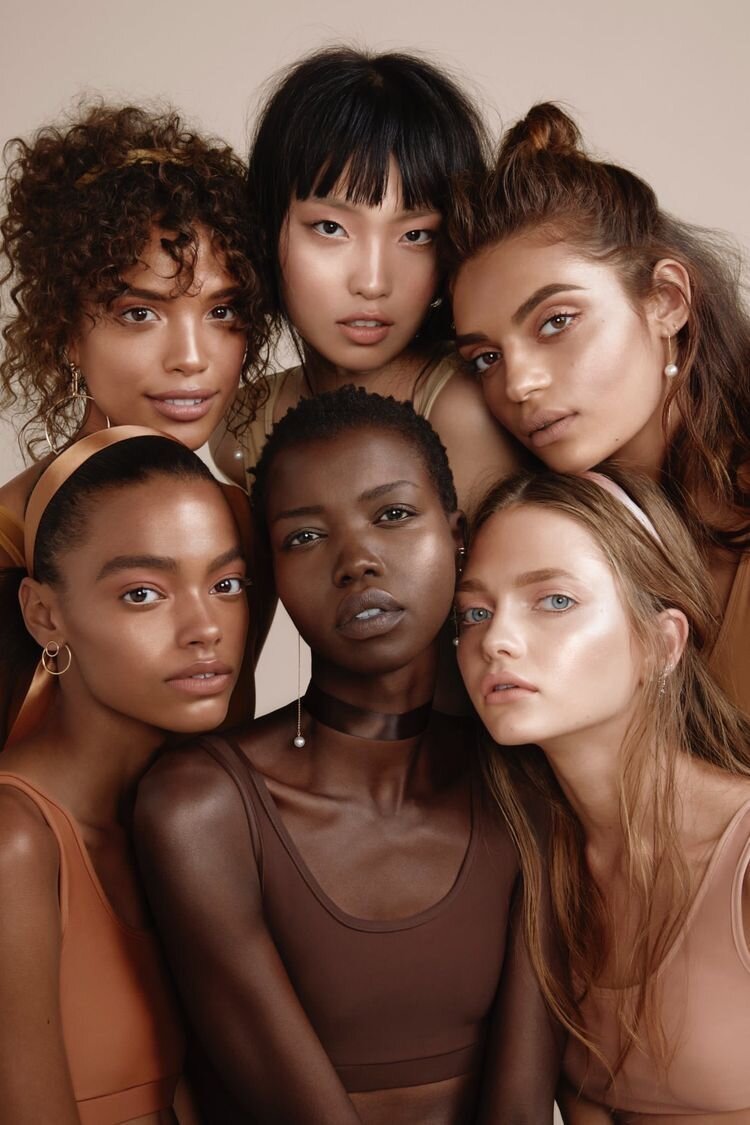
The effects of no inclusion on buying experiences:
In light of my shopping experiences, I conducted a little survey asking women about their opinions on representation. Specifically within ethical brands and the change they would like to see. I wanted to see if other women had similar experiences and it turned out that they did.
Conducting this research gave me a lot of perspective on the experiences of all types of women. Alongside their observations on representation within ethical brands.
Results from survey:
Many women within this survey (ages 18-34), mentioned that they felt unrepresented. Using words such as ‘underestimated’, ‘unseen’ and ‘dismissed’ when asked how being unrepresented makes them feel.
One respondent stated:
Another respondent mentioned :
These responses in particular really stood out to me. Because they show just how important inclusion is in the growth of living sustainably. It makes me wonder how many individuals have given up on their pursuit to sustainable living because they didn’t feel included? But on the flip side how many people have subscribed to sustainable living because they did feel included?
“Brands can’t shift the majority of consumers shopping habits if they fail to represent the minority. “
Equal representation is imperative to any shopping experience. The minority is just as important as the majority. And having this reality within representation will really help brands in general be an avenue that is inclusive to all.
Results from our survey showed that 41% of our respondents felt a little/moderately unrepresented when buying eco friendly products. And a whopping 57% of our respondents, majority being Caucasian said they had never felt unrepresented when buying eco friendly products.
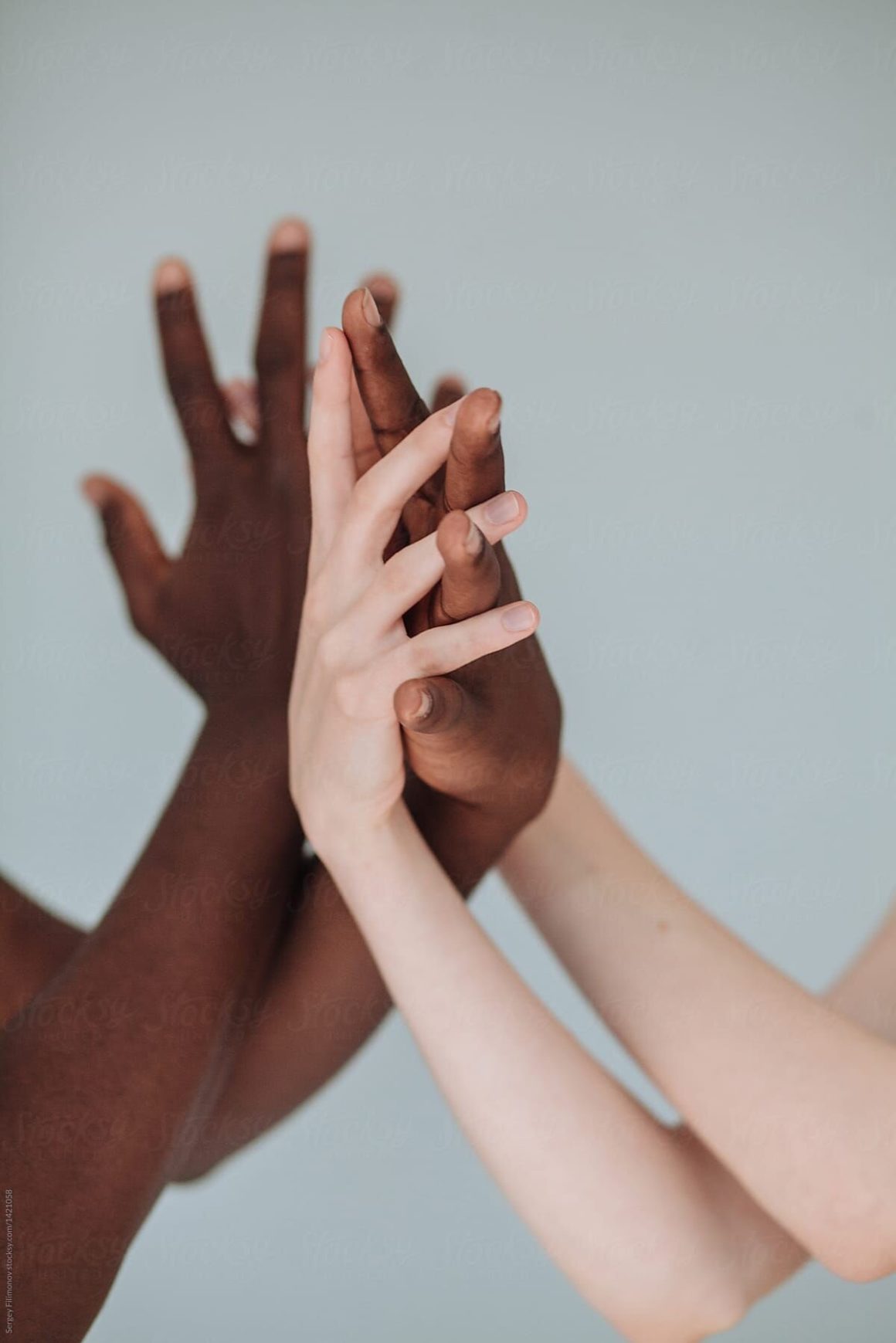
What do you think brands can do to better represent you?
I thought it could be pretty insightful to share some of the changes the women who took part in our survey said they would like to see. This could be our way of starting a dialogue of change about representation and inclusivity.
Results from survey:
Respondent 1 (18-24 year old female)
Repondent 2 (18-24 year old woman)
Respondent 3 (25-34 year old female)
Respondent 4 (25-34 year old female)
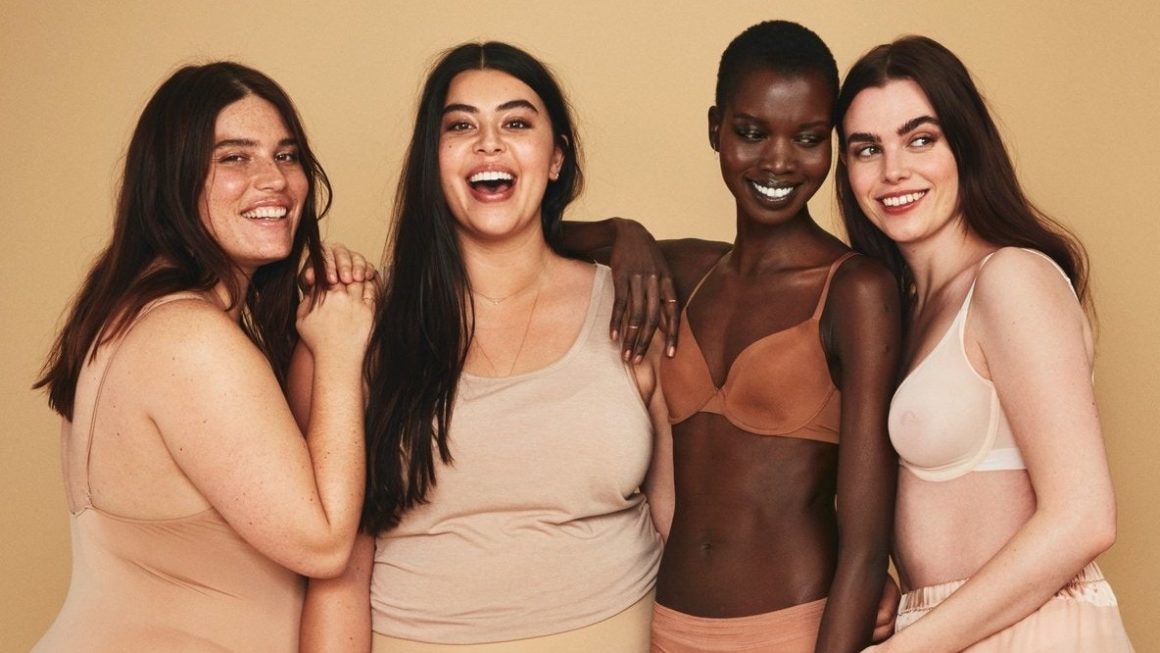
The change that needs to happen within brands:
- Eco friendly brands are doing a good job with diverse campaigns. There are more brands accommodating different communities than previous years. But within brands in general, there needs to be inclusivity beyond advertising campaigns and within product types.
- Beyond race, some of our respondents mentioned that they would like to see brands accommodate communities that aren’t always remembered e.g people with disabilities and low social classes.
- Conversation with those who feel unrepresented is a great start towards inclusivity. And giving an array of individuals a seat at the table is a perfect way to get the conversation of change going.
- Further promotion of black owned/ ethical owned brands would be helpful for ethnic people navigating an eco friendly lifestyle for the first time.
Overall:
As a community of women we would just love to see ourselves more both within campaigns and products. We want inclusion and diversity.
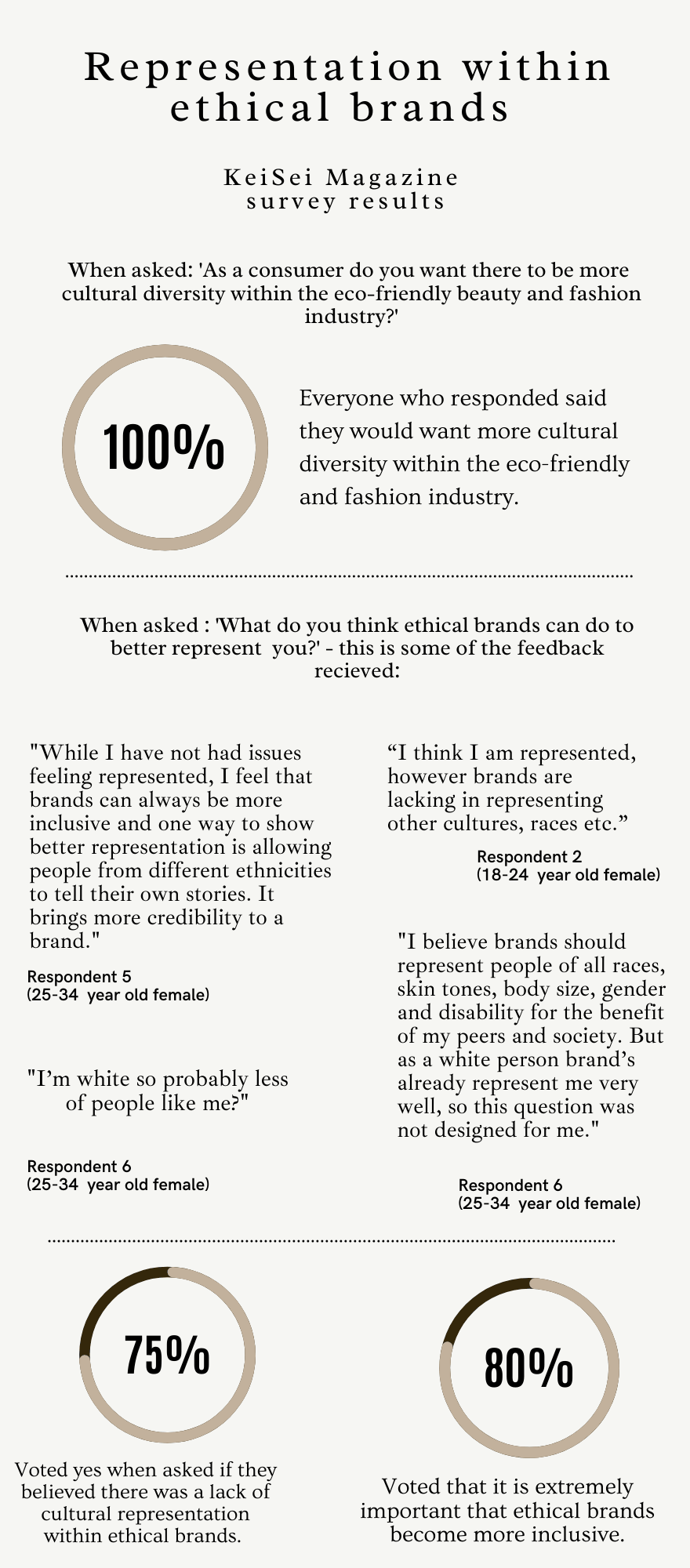
Eco friendly brands are doing a better job at being diverse and accommodating to all cultures and ethnicity. And it is good that there are more options for a wider variety of individuals. But like Winston Churchill once said
“To improve is to change, so to be perfect is to have changed often.”
It would be lovely to see the hierarchy of representation shift away from a majority vs minority scale. And just neutralize to equality and inclusivity. This would really help individuals like myself have a smoother and easier transition to a more sustainable lifestyle.
Although I have mentioned a few changes, we value your opinion and would love to hear from you. What changes would you like to see within brands in general? Let us know in the comments.
And remember, change can’t begin unless we start a conversation.
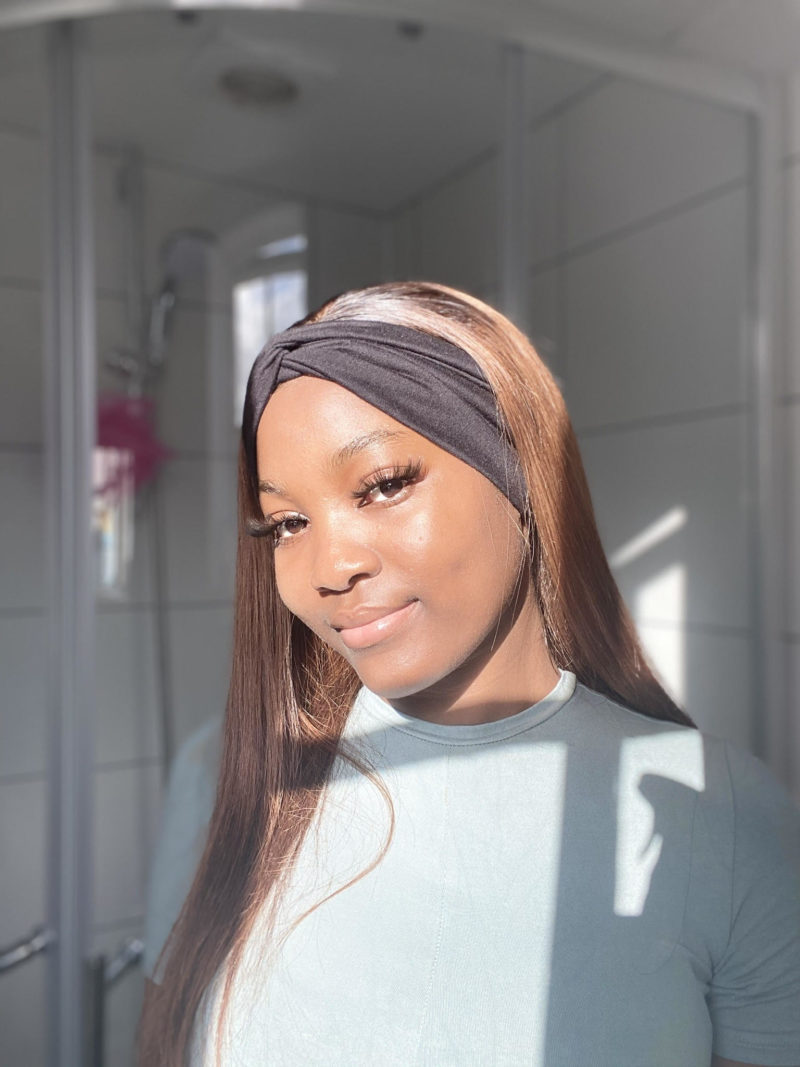
Racheal Bola-Keji
Racheal is an undergraduate at the University of Surrey studying Media and Communication. Her love for writing and fashion stems from her desire to help women reach their full potential in every aspect of life.









